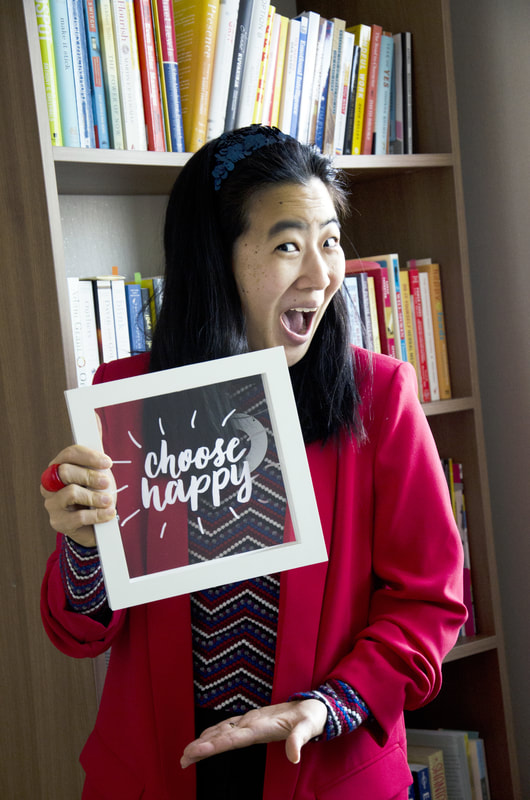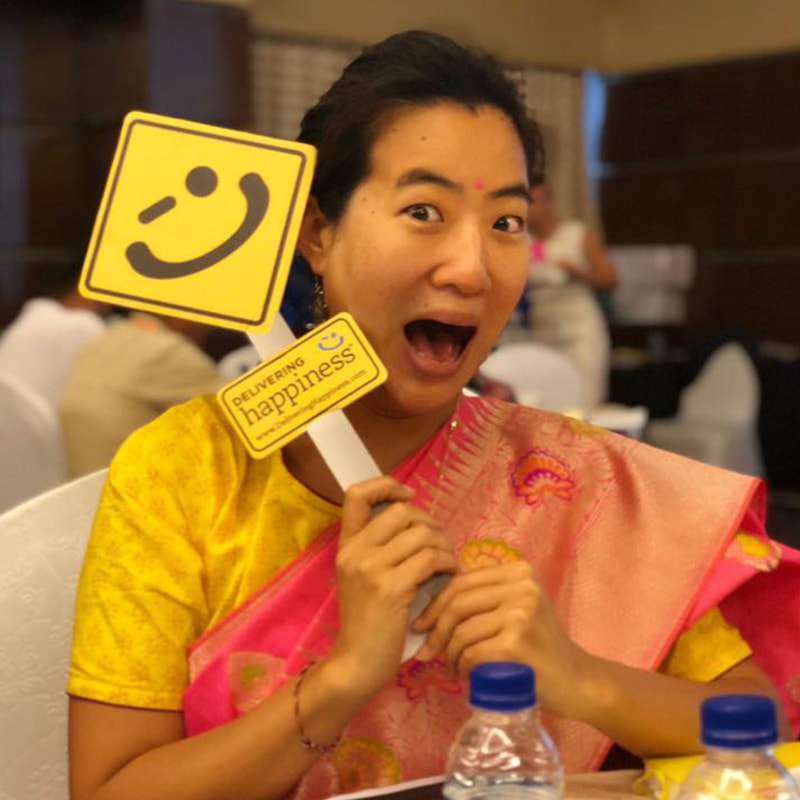|
Life Goals: Be rich, make big money, make money, $$. Not my life goals, but my university students' life goals.
"Can money buy you happiness?" I ask curiously, trying not to sound too judgy. "Well, I think so. I can buy many things. That will make me happy..." I couldn't help but feel disappointed. This isn't just happening in image-obsessed Korea. One of the things I remembered clearly from the TED Talk given by Robert Waldinger about the longest study on happiness in history pointed out that 80% millennials wanted to be rich and 50% wanted to be famous. Check out the TED Talk here. I get it. In a world where you can transfer money, download music, order delivery, and swipe left/right to date, who wouldn't want to be insta-famous/rich? What ever happened to the struggle though? Do you remember having to make mixed tapes? Or anything in fact where you had to struggle? Wasn't the result that much sweeter? When I was in high school, we would painstakingly make mixed tapes for each other as gifts. It meant something. It took time, effort, agile fingers (to press pause/stop). Maybe the recipients of my mixed tape gifts weren't that impressed, but I certainly was. Yeah Ace of Base! Next week, I will be going to Norway to speak at a global women's conference, where I will be giving my Happiness Workshop I created, and have brought around the world. Since I won't be able to teach during that week, I decided to assign my students The HAPPY video project (part of my Happiness Workshop) where they have to go around campus and make as many people around them as happy as possible. Several students asked, "Is this mandatory?" To them I ask another question, "Is HAPPINESS mandatory in your life?" I just get blank stares in response. But here's why we should choose happiness: the myth that being SUCCESSFUL comes first and then HAPPINESS comes second is just that: a myth. HAPPINESS comes first, and then SUCCESS follows. There's a reason people tell you to not follow the money, but follow your heart instead. For more on this research, check out Shawn Achor's work. I get a lot of students who look at me in bewilderment and ask in disbelief, "How can you be happy ALL the time?" Here's the HOW:
Will you choose HAPPY? *I actually was so taken by Shola's book, that mid-reading, I emailed him to ask if we could connect/collaborate. He actually emailed me back, and we had a phone call while I was in California last month! Such a cool guy. If you can get your hands on his book, I highly recommend it. Oh and Shola, like my husband, is living/breathing proof that being HAPPY -> SUCCESS. **This blog post is dedicated to my husband: A man who chooses HAPPY every single day, regardless of the struggle.
6 Comments
I care about EVERYTHING. Here are some things I care about and in no particular order:
Did I care too much? Then I decided to tell the students openly and honestly how I felt, so I recounted the exact same story of how my husband had asked how my first week went and I had cried. Almost immediately, I could feel the air in the room had totally changed: gone were the attitudes, students started sitting up, paying attention, speaking English, and actually doing the activities. The change was palpable. Had I not cared enough to tell them, would they have cared enough to change? At a ladies lunch this past week, an expat friend lamented about how she felt judged for showing up at school not dressed to the nines. Her comment was greeted with "WHAAAT?!" all around, and another expat friend chimed in saying that she felt judged for driving the "crappiest" car of all the hagwon ("after-school academic center" in Korean) owners when she used to own a hagwon. "What kind of car do you drive?" I asked, half expecting her to say a Honda or a Toyota. "A Chevrolet Spark," she replied. Again, she was met with a chorus of "WHAAAT?!" More and more stories were revealed about the pressure to look, act, dress a certain way. As the ladies were talking, I started thinking: Why do women put that kind of pressure on other women? I mean, let's face it, if we could, we would all walk around in our pajamas, right? Or was it a matter of caring? Did the women who dressed up care too much about how they looked? And for the women who didn't get dressed up, did they care too much about what people would say if they didn't? After all that's said and done, shouldn't we be worried about what kinds of mothers people are on the inside, rather than how they dress on the outside? Perhaps all the caring was misdirected. Imagine if all of that energy put into caring about what other people thought was put into caring about themselves? During this past week at GMUK, I cared a little bit less--about 10% less. Even though there were a few students who seemed spaced out, not paying attention, chatting with their friends, I didn't take it personally. As a student myself in Bootcamp, I was recently "caught" chatting with another friend during an exercise. I loved my Bootcamp class, I loved my instructor, and I loved my fellow class-mates. It was nothing personal. As humans, we get distracted, we want to catch up with friends, and try our darndest to multi-task, knowing it's a dying art. So I guess my takeaway is care, but care 10% less about what (you may perceive) people are thinking of you. Use that extra 10% to care for yourself. |
Kyla MitsunagaHappiness coach, Theta Healer®, author, WITH Warrior in Chief <3 Categories
All
Archives
July 2021
|
© 2020-2024 KYLA MITSUNAGA
website by www.coffeecatskimchi.com
website by www.coffeecatskimchi.com


